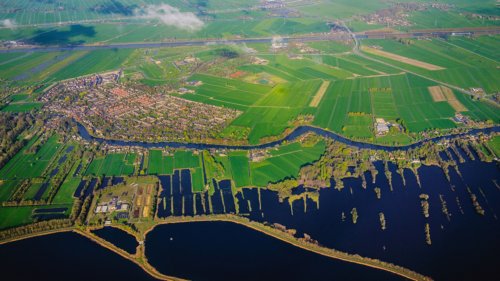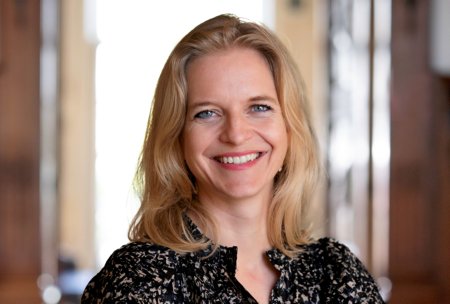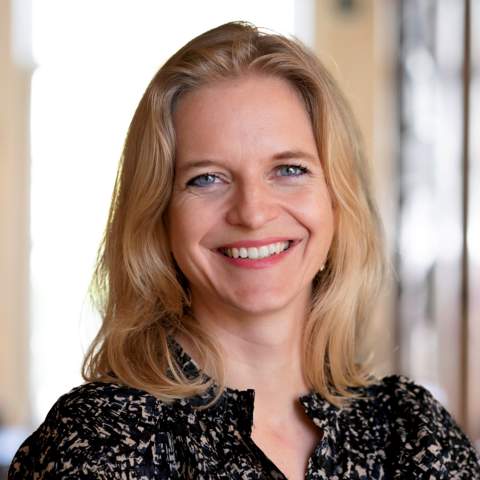The Scientific Climate Council in the Netherlands, in Dutch ‘Wetenschappelijke Klimaatraad’ (WKR) was established formally in April 2023. Wieke Pot, member of the 4TU.Resilience Engineering community, serves as one of the ten council members.
WKR aims for strategic climate policy advice
The establishment of the WKR aims to enhance science-based, strategic climate policy advice for the Dutch government and parliament. The council brings together multiple, complementary scientific disciplines, such as ethics, environmental psychology, energy systems, economics, atmospheric science, and public administration.
A shared interdisciplinary approach
The WKR and the 4TU Resilience Engineering community share an interdisciplinary approach to climate change. Resilience engineering revolves around a thorough understanding of the different shocks, designing smart engineered solutions and involving non-engineering disciplines, like public administration. Likewise, the WKR adopts a system’s perspective to provide governmental advice for transitioning to a climate neutral and climate robust Dutch Delta in 2050 and beyond.
There are additional similarities, such as the themes that both the WKR and Resilience Engineering address. Especially, topics that fall in the fields of adaptation and preparing to cope with local and disruptive climate manifestations.
Wieke: “We observe more extreme weather events in the Netherlands and surrounding countries. This means that we need to prepare ourselves for more frequent and intense shocks. The Resilience Engineering community is already working on those same shocks and stresses. For this, a more holistic approach is employed: building on the interconnected systems and connecting absorptive, adaptive and transformative approaches to strengthen resilience.”
Inspiration for continuing conversations
Wieke thinks of various options how the Resilience Engineering could support her. On one hand, domain-specific experts could share their expertise on subjects, such as water management and energy. "I am confident that there are good ideas in our community, that can be used at a later stage”, says Wieke.
What could be beneficial to the 4TU.RE community is looking into “Klimaat Initiatief Nederland” (KIN). Wieke foresees that transdisciplinary research projects, connecting scientists to concrete knowledge gaps on climate change, will be addressed there. KIN serves as a bridge between policy, practice and knowledge, and can help to improve the impact of research on climate change and to create new networks for collaboration between science and society.

WKR's role in Dutch climate governance
Next to WKR, other institutes in the Netherlands are also responsible for shaping climate policy. Here, we highlight two of them in relation to the WKR: the Environment Assessment Agency (‘Planbureau voor de Leefomgeving’) and the Council of State (‘Raad van State’).
The WKR focuses on scientifically informed advice on the strategic course of Dutch climate policy, whereas the Environment Assessment Agency has a more prominent role in monitoring, assessing and evaluating climate policy, for example through the annual Climate and Energy Outlook, which reports on CO2 emissions. This Outlook serves as an accountability and monitoring tool for the Dutch climate and energy policy and as such is required by the Climate Act.
The Council of State reflects more specifically on the judicial elements and the implementation of climate measures and policies. Wieke: “You can see how the tasks of assessment, monitoring and accountability are divided between the three institutions. The WKR has a mandatory legal task to advise on the long-term Climate Plan every five years, in addition to providing solicited and unsolicited advice where we consider it is needed.”
Urgency for climate action takes central role in first WKR advice
At the end of December 2023, the WKR published its first policy advice to support the Government's forthcoming 2025-2035 Climate Plan. This advice is entitled ‘All aboard for the transitions’. The key message of this first policy advice is to adopt a more holistic system’s perspective on climate policy to enable just, efficient and effective transitions to a climate-robust and climate-neutral Netherlands in 2050 and beyond. Furthermore, climate mitigation action needs to rapidly accelerate, and, for that, climate policy should set an ambitious 2040-goal of 90-95% greenhouse gas emission reduction in order to be net zero by 2050.
Wieke: “Last year was the wettest and warmest year on record, therefore mitigation by reducing greenhouse gases is important, but there is also a need for adaptation. As a country, we need to adapt to more wet and dry weather conditions and rising sea levels. Policies are needed to deal with this and these policies need to be informed by the latest insights from interdisciplinary science.
What’s more, speeding up action is very much needed to keep in step with the ambitions. We have to make an earlier start with climate mitigation plans. In order to reach our objectives for 2040, we need to focus on what we can do now. For example, we could look at how to reduce costs, because it becomes increasingly complicated to achieve the set goals if we allow for a delay now.”

An attractive perspective to get everyone on board
One approach of getting into action, according to Wieke, is to outline an attractive future perspective. This perspective should be grounded in the idea of a safe, liveable and healthy country to live in. An attractive long-term vision for The Netherlands gives room to all citizens to participate. Wieke says: “In this attractive long-term vision, we take into account not only CO2 emission reduction, but also including other environmental issues, like the availability of fresh water, the loss of biodiversity, and nitrogen among others.”
The WKR distinguishes three focus areas to provide more concrete recommendations: food and agriculture, circular economy and materials, and the energy transition. These are by no means the only transition challenges, but there is much to be gained from additional work in these areas.
Advice directions in the near future
Two other issues will be addressed in the near future. Wieke mentions that future reporting will address recommendations for the governance of carbon dioxide removal. Another focus will be to explore the relationship between health and climate and between adaptation and mitigation, as well as its consequential policy challenges.
The WKR is taking up this health and climate theme in a collaboration with the Health Council of the Netherlands (‘Nationale Gezondheidsraad’). The Health Council is a similar, independent scientific advisory body and has the legal task to advise the Dutch ministers and Parliament in the field of public health and health/healthcare research.
Health as seen from a climate change perspective is growing in importance. Think of heat stress and pandemics, for example. Climate action could actually contribute to more positive health outcomes.
Dynamics in national politics
The direction of the WRC's work is clear, but there is always room to explore other advice queries, depending on the political developments. Climate ambitions and policies have been mentioned by the elected parties. Wieke says: “If you look at the parties’ programmes, especially those that were successful in the last elections, you will find that the approach to climate policies vary widely. But even when political parties are critical towards measures, the argument for urgency still holds. The supporters of these parties feel the burden from climate change here and now too. Common ground for climate mitigation and adaptation should be found in a safe, liveable and healthy Netherlands. How this will play out in the future remains to be seen. Whether the implementation of the chosen policy can be accelerated depends considerably on the new coalition agreement.”
Strong relationships beneficial for development and dissemination of advice
In the meanwhile, the WKR is undertaking many activities to be visible to the outside world. Wieke: “I recently presented at an event of the Dutch meteorology and hydrology science associations. These presentations offer the opportunity to showcase the work of the WKR and to foster interactions.” Other forms of outreach are seeking press coverage, and to address a range of policy makers, including members of Parliament.
Wieke: “In addition to these activities, I would like to highlight that not only is the dissemination of the WKR’s advice important, it’s equally crucial to draw on expertise and experiences when developing analyses in order to make recommendations. We strive to include consultations with bodies such as the Dutch Delta Programme and the Ministry of Economic Affairs and Climate Change in the preceding exploration phase, before we develop recommendations. By doing so, we strive to make the WKR’s advice as relevant as possible.”
Further reading
English Summary of the first Policy Advice, published December 2023.
Photo credits: A. Oomen (portrait of Wieke), Daria and RedCharlie via Unsplash.com.





